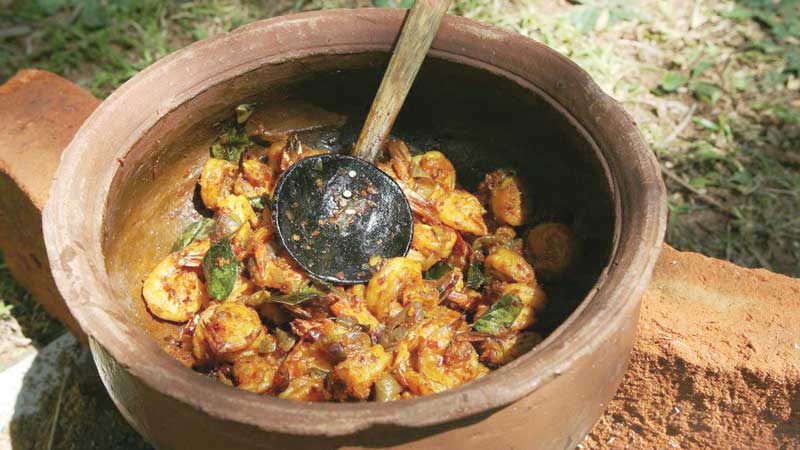

Turmeric is a pillar of Sri Lankan cuisine. And yet as a result of the pandemic, this vital ingredient is currently in short supply across the South Asian island nation.
Because of the economic impact of the pandemic, the government banned the import of spices like turmeric and several other products a year ago in an effort to boost domestic production.
Since then, however, the price of this all-purpose spice has skyrocketed to the equivalent of 20 to 30 dollars per kilo — five to ten times as much as before the pandemic.
Without this beloved spice, Sri Lanka’s staples like curries and soups have gone bland, losing their characteristic flavour and orange colour.
Turmeric is also a key part of traditional Ayurvedic medicine in Sri Lanka, and is valued for its anti-inflammatory effect, among other things. People here even use the powder as a disinfectant.
Before the outbreak of the coronavirus, the island state had imported most of the 7,500 tonnes needed to sustain national cuisine and other uses for turmeric, official figures show.
The black market is now booming.
The country’s navy says it has seized more than 73 tonnes of turmeric since the middle of last year, much of it smuggled over sea from India, with at least 165 turmeric smugglers arrested.
Spice stands have meanwhile be flooded with counterfeit turmeric, an orange coloured substitute powder, while some spice purveyors have been caught selling diluted turmeric, health official Anura Jayasinghe recently said.
However, because of the pandemic, officials do not have time to conduct frequent checks on sellers and manufacturers, he said.
Restaurant owner Kumara Perera says he is now forced to completely do without this spice, as he can’t trust the turmeric he finds at markets is reliably safe.
Tharangani Priyadharshani, who lives in the capital Colombo, says many middle-class families like hers can no longer afford it.
“We have been used to have turmeric for generations and our grandparents have told us that it also helps to prevent diseases such as cancer,” she says. “That’s why it’s not just the flavour and colour we miss.”
There is some hope, however, for Sri Lankans who miss the flavour of their curries. According to officials, thousands of Sri Lankans have now begun producing turmeric themselves as a result of the import ban. They hope that this will meet the high domestic demand in the coming months.
For those unable to make turmeric themselves, however, curries won’t be the same. “The children complain that the food is tasteless because we cook without turmeric,” says Priyadharshani. “But we don’t have an alternative.” — dpa
Oman Observer is now on the WhatsApp channel. Click here



